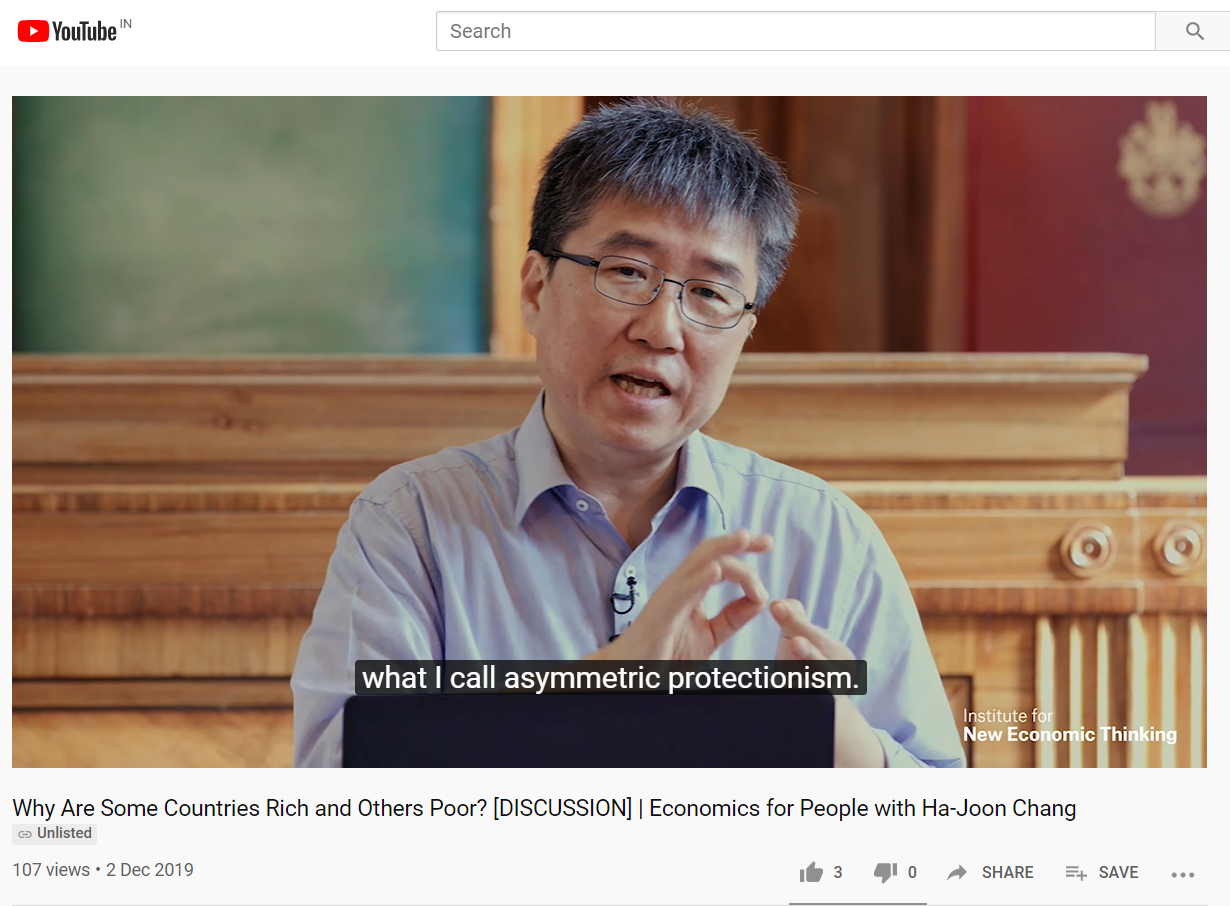Imperialism and free-trade is the most important reason for why some countries are rich and others poor. Because of the principle of circular and cumulative causation, they rarely catch up. Poor countries aren’t “underdeveloped”—it’s a misleading word—they’re exploited. Hence there’s a need for global rules to allow for convergence of fortunes of nations. The current rules of globalisation lead to polarisation and welfare of a few, not the many.
I recently recommended Ha-Joon Chang’s lecture series. It’s a long one—13 lectures followed by discussions.
In the discussion part of the talk Why Are Some Countries Rich And Others Poor, Ha-Joon Chang calls for asymmetric protectionism. The global rules are in favour of poor countries and not the rich ones.
